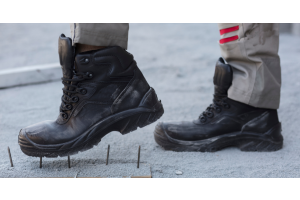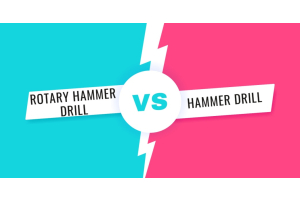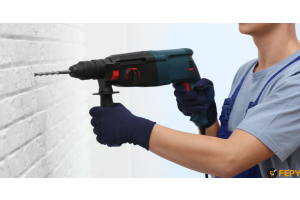How to Choose the Right Safety Gloves for Your Needs
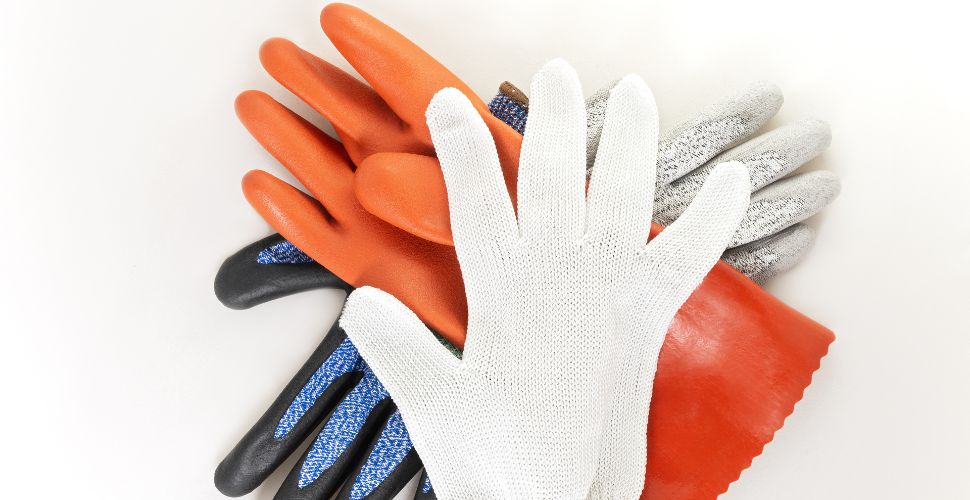
Your hands are your most valuable tools. While performing a specific task, you should wear suitable safety gloves. They provide a good fit and shield you from cuts, heat, and impacts, ensuring your safety and allowing you to work efficiently. Let's explore the key factors when choosing the perfect pair of safety gloves.
11 Factors to Consider When Choosing Safety Gloves
Choosing the best safety gloves is always challenging due to the various options available. You can choose the right safety gloves based on these 11 factors.
1. The Type of Work:
A glove may be more suitable for a particular situation than another. Matching the glove to the task is essential to maximise safety and performance. To choose ideal safety gloves, you must first identify your needs.
It is essential to consider your work environment and the types of tasks you perform when determining how much protection is needed. There are several types of gloves, each with a specific use.
- Cut-resistant Gloves: If you handle razor-sharp blades, sheet metal, or materials that could slice your hands, cut-resistant gloves are a must-have.
- Electrical Gloves: Electricians rely on these to stay safe when working with live wires, outlets, and other sources of dangerous electrical currents.
- Impact Gloves: These are designed to protect against the jolting impact of power tools, heavy machinery, and even manual tasks like hammering.
- Welding Gloves: When facing extreme heat, sparks, and potential impacts, welders need gloves.
- Knitted Gloves: If you need to move your fingers freely for intricate tasks, knitted gloves offer flexibility without sacrificing protection.
- Chemical-resistant Gloves: Working with harsh chemicals, solvents, or other dangerous substances? These gloves create a vital barrier between your skin and potential harm.
- Heat-resistant Gloves: Handling hot metal, working near ovens or kilns, and even grilling require gloves that protect against burns.
- Disposable Gloves: In tasks where hygiene matters as much as protection or where you need to change gloves often, disposables are a practical solution.
2. Cut protection
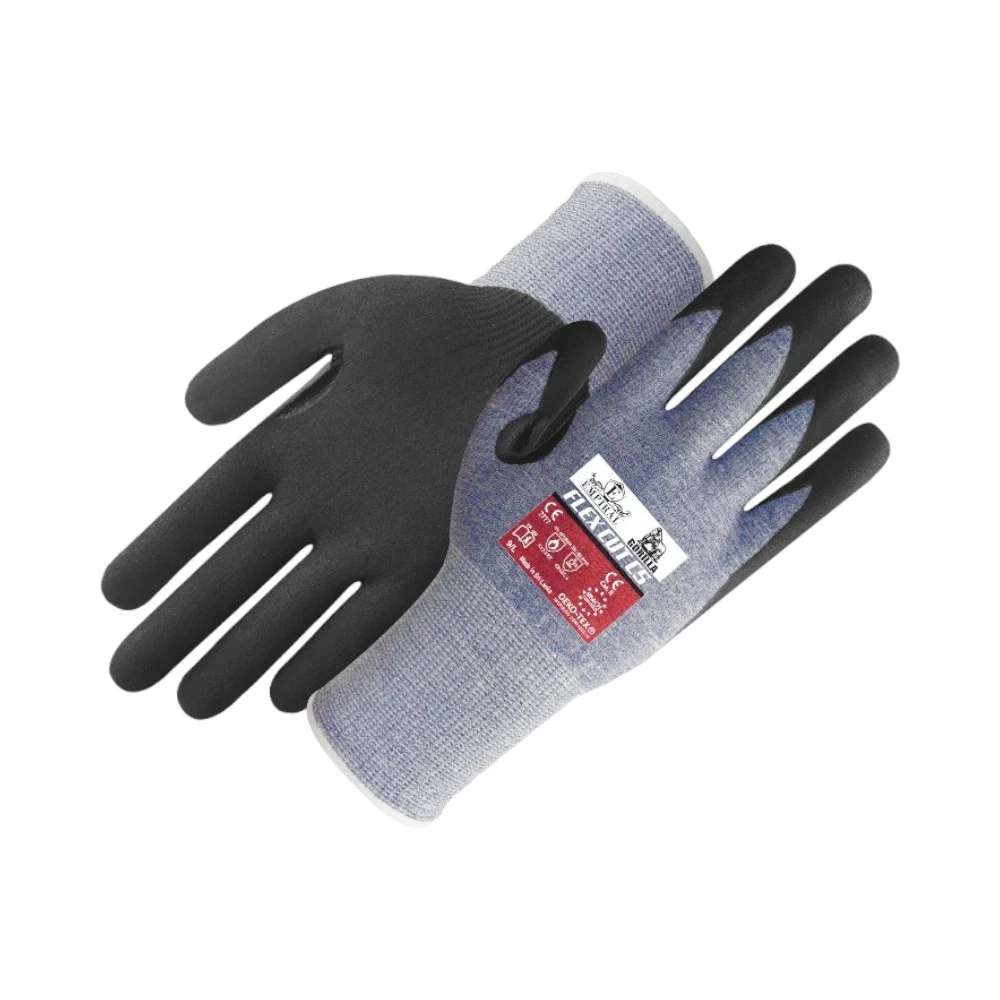
The threat of cuts is real in jobs that involve sharp objects like blades, sheet metal, or even broken glass.
The sharper the object and the more force you use, the greater the risk of injury. That's why cut-resistant gloves are so important. These gloves create a protective barrier between your hands and the potential hazard.
The level of cut resistance you need depends on the specific materials you handle and the pressure you apply during your work tasks. It's essential to choose gloves that offer adequate protection for your situation.
Prioritising cut-resistant gloves may take a few extra minutes upfront. Still, it's a small investment compared to the potential cost of a painful injury and lost work time.
3. Electrical Protection
If you work with electricity, you need gloves with the proper insulation to protect you from dangerous shocks.
Electrical gloves are designed to act as a barrier between your hands and live electrical components.
Always ensure your gloves have the electrical insulation properties necessary for the job.
4. Heat Resistance
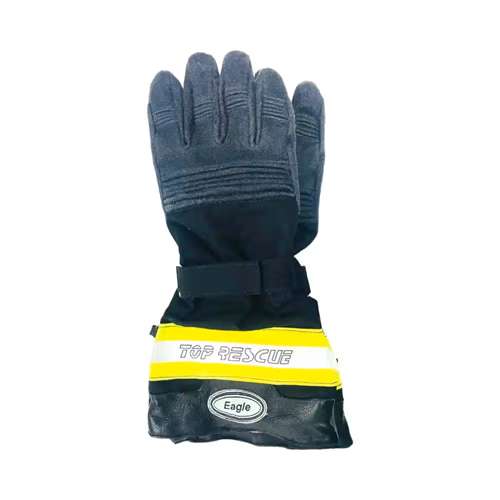
Consider the level of heat your gloves will need to withstand. It ensures protection from burns and lets you work comfortably in high-temperature environments.
Tasks like welding involve intense heat and flames, so choosing gloves that offer the right level of heat resistance is essential.
Welding gloves are an excellent example of this combination.
5. Chemical Resistance
Working with hazardous chemicals means you need gloves designed to fight back. Chemical-resistant gloves are your front line of defence, creating a vital barrier between your skin and a range of dangerous substances.
All chemical-resistant gloves are not identical. To ensure maximum safety, carefully consider the chemicals you encounter on the job and choose gloves certified to resist them. It could mean gloves designed for acids, solvents, fuels, or other materials.
It is imperative to find chemical-resistant gloves that are suitable for the job. It's a critical step in protecting yourself and staying safe in hazardous environments.
6. Comfort and Dexterity
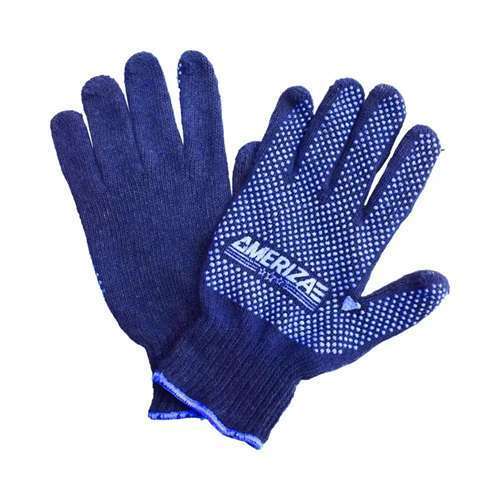
The gloves must be comfortable when working long hours to prevent fatigue and soreness. The suitable gloves let you naturally move your hands and fingers without stiffness or pinching.
Knitted gloves excel in both comfort and flexibility. To match your work demands, look for knitted gloves with added features.
7. Grip
A good grip on your tools is critical, whether working with smooth metal or heavy loads.
It is essential to wear gloves with grippy surfaces or coatings to hold onto your tools even if they are wet or slippery.
It is also essential for latex rubber gloves to have a texture that promotes a firm grip. This extra control makes your work safer and more efficient, especially when using high-powered tools or handling precision materials.
8. High-Visibility Colours
Choose gloves in bright, high-visibility colours for increased safety. Look for orange, yellow, or other eye-catching colours that ensure your hands stand out, even in dimly lit or chaotic worksites.
Extra visibility at work helps prevent accidents by making your hands more visible to others.
9. Material Durability
Your gloves must be as challenging as the work you do. Choose options constructed from durable materials designed to handle the specific hazards you encounter.
For example, Arc Flash gloves are designed for exceptional durability in environments where electrical hazards like arc flashes pose a risk.
Investing in gloves crafted from solid materials enhances safety, reduces the need for frequent replacements, and ensures your hands stay protected throughout your work day.
10. Certifications and Standards
Ensure your gloves meet impact protection standards the International Safety Equipment Association (ISEA) set. It guarantees the gloves have undergone rigorous testing to provide the necessary protection.
Choosing gloves that follow these standards gives you peace of mind.
Look for glove packaging certifications or descriptions to confirm they meet ISEA impact protection standards.
Prioritising gloves that meet these benchmarks ensure quality and reliable protection for your hands on the job.
11. Cost Efficiency
Finding the right balance between cost and protection is critical.
Consider the level of protection required for your specific tasks and weigh that against the price of the gloves. Avoid being tempted to cut corners on safety by choosing cheaper gloves that may not offer adequate protection.
On the other hand, there's no need to overspend on features you don't necessarily need.
For example, suppose your work involves frequent glove changes. In that case, disposable gloves might be the most cost-effective solution. They provide a clean, sanitary option while ensuring you're not breaking the bank on replacements.
Final Words
A safe, comfortable, and efficient work environment requires the right safety gloves tailored to your needs. Suitable gloves can significantly enhance your overall work experience and play a vital role in preventing accidents and injuries.
Investing in quality gloves that meet your job requirements can improve your well-being and productivity.
Safety gloves are available at FEPY in all sizes and types. FEPY is a leading e-commerce platform in the UAE that provides premium building materials and tools at the most affordable prices.



